PROGRAMME OVERVIEW
The extent of pharmacology is fast growing for the discovery, development and provides the rational basis for the therapeutic uses of new molecule. In its entirety, it embraces knowledge of the sources, chemical properties, biological effects, molecular mechanisms and therapeutic uses of drugs. Pharmacological studies range from those that determine the effects of chemical agents upon subcellular mechanisms, to those that deal with the potential hazards of pesticides and herbicides, to those that focus on the treatment and prevention of major diseases by drug therapy. Pharmacologists are also involved in molecular modeling of drugs, and the use of drugs as tools to dissect aspects of cell function. The scope of pharmacology has expanded exponentially over the last decade to incorporate many new approaches such as computer-assisted drug design, genetic screens, protein engineering and the use of novel drug delivery vehicles including viruses and artificial cells.
Postgraduate education in Pharmacology emphasizes an integrated study of the physiology, pathophysiology and action of drugs in living systems. Research in the department focuses on study of neural and endocrine systems, cardiology, pulmonary, epilepsy, clinical pharmacology, pre-clinical toxicology and drug metabolism. Research in these areas is applied to clinical problems such as aging, Parkinson’s disease, epilepsy, obesity, hypertension and diabetes mellitus and its secondary complications. Students work on molecular pharmacology of experimental dementia of Alzheimer type; Ischemia preconditioning a protective cardio-vascular event, pesticide residues toxicology and molecular pharmacology involved in obesity, diabetic neuropathy, diabetic nephropathy, Huntington’s Disease, Parkinson disease and endothelial dysfunction is being explored research facilities are available for various projects including state-of-the art bio- analytical and pharmacology laboratories.
CAREER OPPORTUNITIES
Healthcare education has a significant impact on the health of the community and improving services for the patient. It instills fundamental values and directs specific attitudes for the healthcare professionals. Pharmacy is an essential part of the healthcare system all over the world. Pharmacy revolves around people and medicines with special emphasis on the manufacture of medicines, their supply, appropriate use and effects. The ultimate concern of this profession is to ensure that the patient receives the appropriate medicines and benefits from the proper use of these. Contrary to popular belief, pharmacy is not limited to counting and dispensing pills. Pharmacy is a rewarding profession in the health care system that involves working closely with doctors and patients. It is an important and trustworthy occupation that reaches into almost all aspects of medicine and healthcare.
The Indian Pharmaceutical Industry, today, is in the forefront of India’s science-based industries with wide ranging capabilities in the complex field of drug manufacture and technology. This industry can boast of high quality producers and recognition from many international regulatory authorities. Many international companies have entered this sector in partnership with Indian Companies. Globalization of the profession has now thrown up as many challenges as opportunities before those who are involved in this profession. In this scenario, our department has a great role to play in equipping our students adequately to live up to this grand vision and to enable the industry to meet these challenges. Pharmacy offers flexible work schedules, a broad spectrum of opportunities, direct patient contact, and top salaries right out of the college.
COURSE DETAILS
FEE STRUCTURE
| Course Code | Course Name | Tuition Fee | Other Academic Charges* | Admission Fee (One Time) | Total Fee per Annum (INR) |
|---|
* Other Academic Charges includes Development Fund, Examination Fee, Alumni Fee etc.
| ROOM TYPES | FEE PER ANNUM (Indian Nationals) in INR | FEE PER ANNUM (Foreign Nationals) in USD | |
| SINGLE ROOM | AC | 140000 | 2900 |
| COOLER | 105000 | 2100 | |
| NON AC | 95000 | 1700 | |
| SHARED ROOM (2-3 SEATER) | AC | 120000 | 2600 |
| COOLER | 90000 | 1600 | |
| NON AC | 80000 | 1250 | |
| One Time Security Amount of Rs 5000 / USD 75 will be charged extra (adjustable) | |||
| Hostel Fees includes Room Rent, Mess, Laundry Service, Electricity, Wi-fi & Gymnasium charges. | |||
| Students who wish to avail accommodation after January 01 of the respective year, shall be liable to pay 60% of the annual fees. | |||
| The Hostel fee is subject to revision every year. | |||
| For more details, please read the halls of regulation guide. Click here |
| Slab wise Route | Fee |
|---|---|
| Slab 7 (Delhi - All Places) | INR 34,000 |
| Slab 6 (Gurgaon) | INR 32,000 |
| Slab 5 (Rohtak, Sonepat) | INR 28,000 |
| Slab 4 (Bawana, Chhawla Village, Deenpur, Nangli Dairy, Narela, Udyog Nagar) | INR 26,000 |
| Slab 3 (Kanjhawala, Kharkhoda, Kundal, Najafgarh, Nangloi, Sampla, Saidpur, Sohti) | INR 22,000 |
| Slab 2 (Asoda, Bamnoli, Ghewra Mor, Jharoda Village, Ladrawan,Kanonda, Mundka, Tikri Border) | INR 19,000 |
| Slab 1 (Brigadier Hoshiar Singh Metro Station, Bahadurgarh) | INR 12,000 |
| Transport Regulations: | |
| 1. The entire fee shall be payable before the commencement of the academic session. | |
| 2. Transport fee, once paid shall not be refunded/adjusted after the commencement of the classes under any circumstances. | |
| 3. Air-conditioned buses will be operated from limited places. | |
| 4. Transport fee shall be subject to revision every year. |



